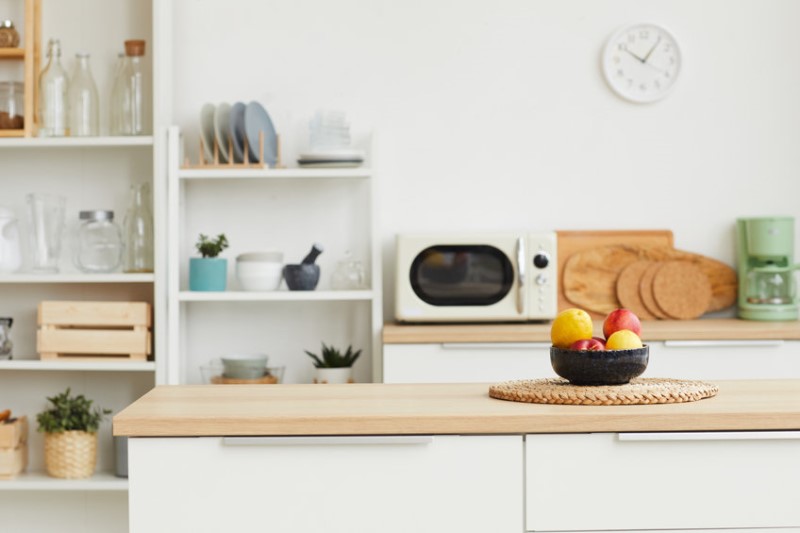
Minimalism is a very effective tool for improving your quality of life. It is why minimalists swear by it. If you use minimalism, you will have more money and more time available. Also, your home interior will be more beautiful and easier to keep that way. These are some major benefits, but many people are skeptical. Instead, they see minimalists as unrealistic. Here are some reasons why:
The name “minimalist” is misleading.
There is no question that the name “minimalist” can give the wrong impression. It can conjure up images of someone sleeping on the floor in an empty apartment. To most people, this is an unrealistic way to live. Also, we cannot blame them for thinking this.
But minimalism does not advocate getting rid of everything you have. Instead, it advocates getting rid of whatever you find useless. In fact, here are some definitions of minimalism:
Focusing on what you value most by removing whatever distracts you from it.
Focusing on what matters by removing what does not.
Promoting what is important by excluding what is not.
Minimizing whatever is useless.
From these definitions, you can see that minimalism is about excluding what doesn’t belong. So, minimalists exclude whatever doesn’t belong in their lives.
Some people mistake asceticism for minimalism.
Asceticism promotes depriving yourself of useful things. It might help self-discipline, but it is unrealistic for having a happy life. Sadly, many people mistake it for being minimalism. So they consider minimalists unrealistic for expecting happiness.
Many self-proclaimed minimalists contribute to this misconception. They do it when they claim to have fewer than a given number of items. Their intentions may be good, but they send the wrong message that seems unrealistic. Minimalism is not about having fewer than a given number of items. It is about minimizing useless things that waste your space, time, money, and energy. Minimalism is not about depriving yourself of useful things. It is about keeping your favorite things.
Minimalists say you can improve your life by getting rid of many things.
Saying you can improve your life by removing things will seem unrealistic to many people. Consider that they paid their hard-earned money for these things. The thought of discarding these things makes no sense to them.
If something is useless, what you paid for it won’t make it more useful. It is bad enough if you wasted your money on it. But it is even worse if you are also wasting your space, energy, and time on it. So if you will never use something again, you are better off without it.
Minimalists’ homes seem too tidy to be realistic.
Many people struggle with clutter. They spend hours organizing but just can’t keep their clutter under control. When they see the immaculate interiors of minimalists’ homes, they often become skeptical. Many people wonder if these homes only look tidy for the cameras and are messy every other time. Some even ask where the minimalists hide all their stuff.
In reality, the homes of minimalists are tidy most if not all the time. Having fewer things makes their homes very easy to keep tidy. The tranquility of their tidy homes also makes it fun to keep their homes that way.
Some people feel threatened by minimalists.
There are many online articles that criticize minimalists and minimalism. Some state things that have no basis in reality. Some use strawman arguments. Also, some are self-contradictory, and some even use personal attacks against minimalists. Here are some of the arguments:
“Minimalism involves cleaning 24 hours a day.”
“Minimalists only use white furniture.”
“Poor people are forced to be minimalists, but minimalism is for rich people.”
“Minimalists are smug.”
People only use these arguments if they feel threatened by minimalism and minimalists. Merchants feel especially threatened because widespread minimalism can hurt their profits. In fact, many of these attacks are just like the tactics used by shills. You should realize that many people who use these tactics have ulterior motives.
Minimalists are counter-cultural.
Minimalists do not conform to cultural norms when it comes to material things. If they have no use for something, they wouldn’t want it even if it is free. They don’t care about keeping up with the Joneses. Also, they don’t judge other people’s worth by what they have. These attitudes are so far outside the norm, that most people cannot even relate to minimalists. Also, many people wouldn’t consider these attitudes to be even remotely realistic.
Despite what people think, these are very realistic attitudes about life. After all, if you have no use for something, you will get no benefit from it. It will only waste your resources, so you are better off without it. Also, keeping up with the Joneses is a bitter contest with no real benefit for the winner. It only encourages envy and resentment. The stuff a person has does not determine the quality or character of the person.
In summary, using minimalism will let you have more time, space, and money. It will also improve the quality of your living space and make it easier to keep that way. Yet, many people think minimalists are unrealistic for the following reasons:
The name “minimalism” is misleading.
Some people mistake asceticism for minimalism.
Minimalists say you can improve your life by getting rid of many things.
Minimalists’ homes seem too tidy to be realistic.
Some people feel threatened by minimalists.
Minimalists are counter-cultural.
Despite the false impressions, minimalism can improve your life in many ways. It is why minimalists swear by minimalism.
